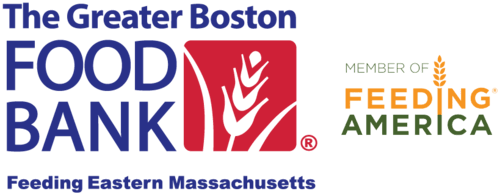GBFB Statement on Fiscal Responsibility Act
GBFB Statement on Fiscal Responsibility Act
Over the weekend, President Biden signed the Fiscal Responsibility Act into law, after weeks of negotiations.
While it is encouraging that Congress and the White House reached an agreement to raise the debt limit and avoid default, we are disappointed that the final legislation includes provisions that will ultimately worsen the state of food insecurity in Massachusetts—especially at a time when 1 in 3 people in Massachusetts are struggling to have enough food.
The agreement comes days after The Greater Boston Food Bank released its 2023 statewide study on food insecurity, Opportunities to Improve Food Equity & Access in Massachusetts: Ending Hunger—Together. The research paints a stark picture of one in three individuals in MA facing food insecurity. The extraordinary public and private response over the last three years, and investments in the federal and charitable food systems have helped cushion the otherwise devastating blow of the pandemic for millions of Americans. Now, as pandemic aid is pulled back and the cost of living is at an all-time high, food insecurity is on the rise again.
“We will monitor the impact in Massachusetts while we continue to promote policies that move our neighbors out of poverty towards food security,” said Catherine D’Amato, GBFB President and CEO.
The provisions are less severe than those in the debt limit bill passed by the House in April—advancing infrastructure, clean energy, and safeguarding health care and retirement security. However, the agreement creates more stringent work requirements for cash assistance programs like Temporary Assistance for Needy Families (TANF), making it harder for states to provide a safety net for families with children, including families where the parent has a severe disability, is caring for a young child, or is caring for a disabled family member. It will also make it harder for parents to meet work requirements through activities—including education and job preparation—that we know are critical to help families move forward.
Additionally, the deal expands the age range of able-bodied adults without dependents who are required to provide employment documentation to receive SNAP benefits for three months every three years from ages 18–49 to 18–54. Ample evidence shows that SNAP work requirements do not promote employment and earnings, rather makes it harder for people to put food on the table. Going hungry does not help unemployed people get back to work.
At the same time, the agreement includes new exemptions to the rule for veterans, people experiencing homelessness, and youth aging out of foster care—all improvements to current SNAP policies. While the new exemptions are positive for certain populations, they do not offset the harm—improvements for some don’t justify expanding to others a failed policy that will increase and deepen poverty. Those hit hardest by the impacts of this agreement will be those with the lowest incomes, disproportionately people of color.
Read Feeding America’s full analysis of the bill here and GBFB’s joint statement with our MA hunger-relief organizations opposing the proposal here. We look to the MA Congressional delegation to strengthen and protect federal nutrition programs in the 2023 Farm Bill, including The Emergency Food Assistance Program (TEFAP), SNAP, and the Commodity Supplemental Food Assistance Program (CSFP).
Learn more about GBFB’s Public Policy Priorities and how our SNAP Outreach team supports people seeking food assistance.
Media Contact
Catherine Lynn
GBFB
VP, Communications and Public Affairs
617.828.7422
press@gbfb.org
